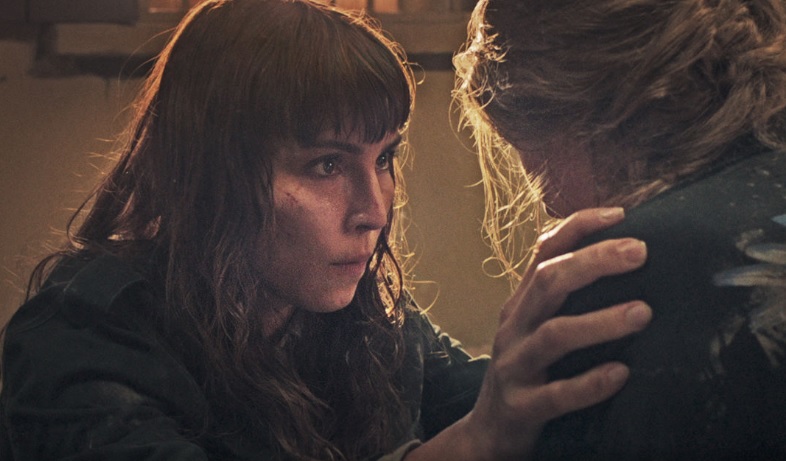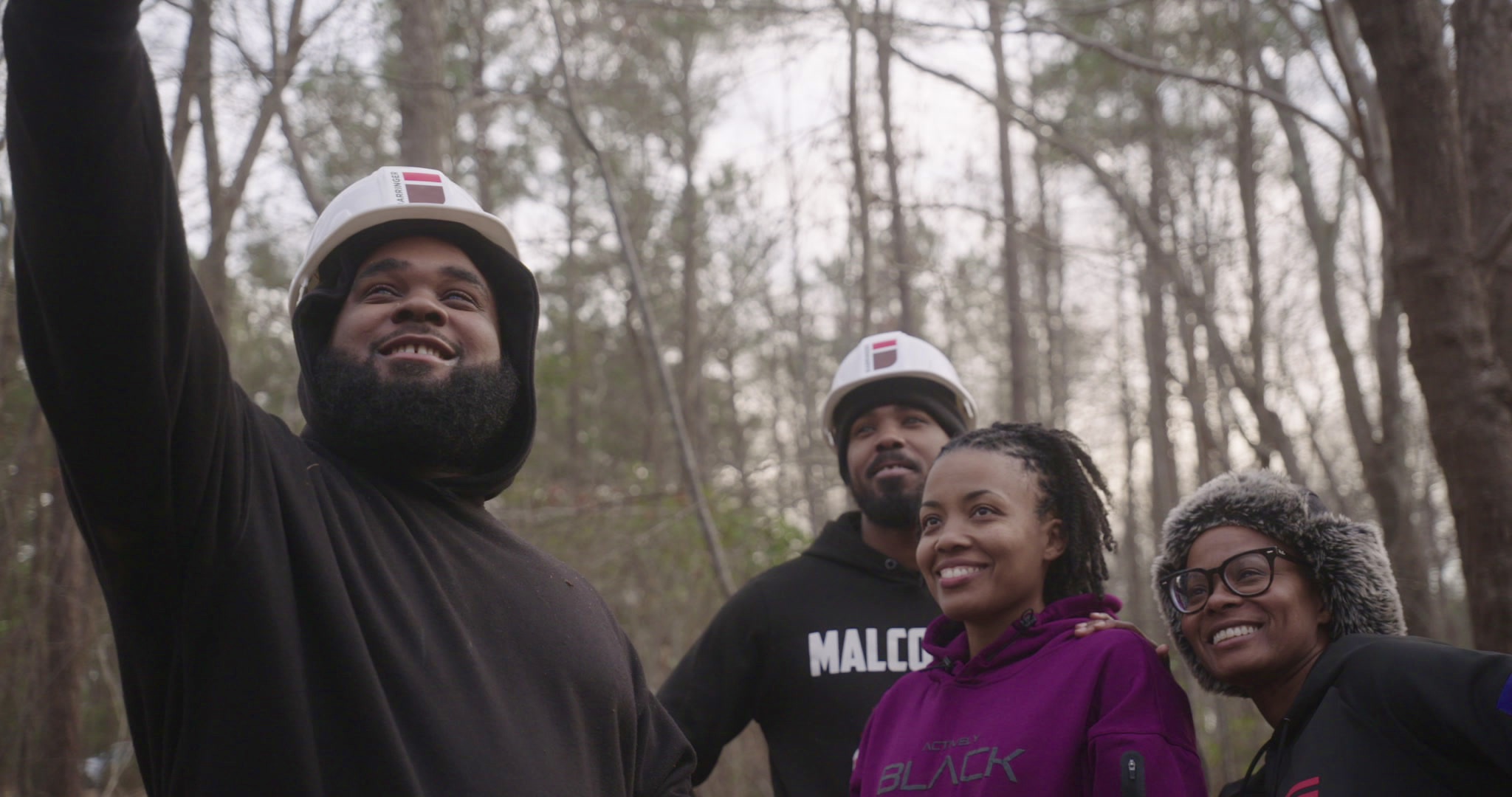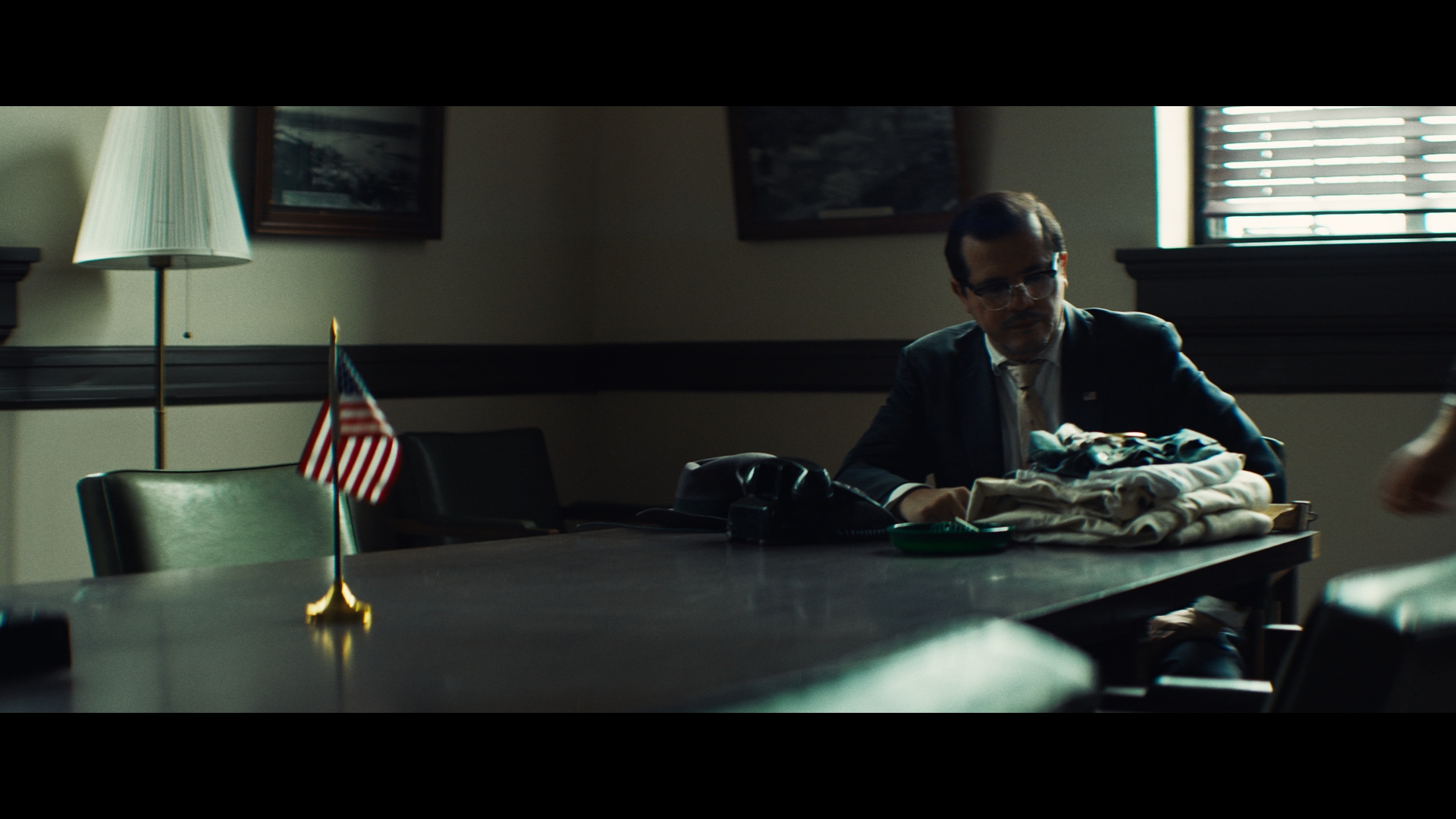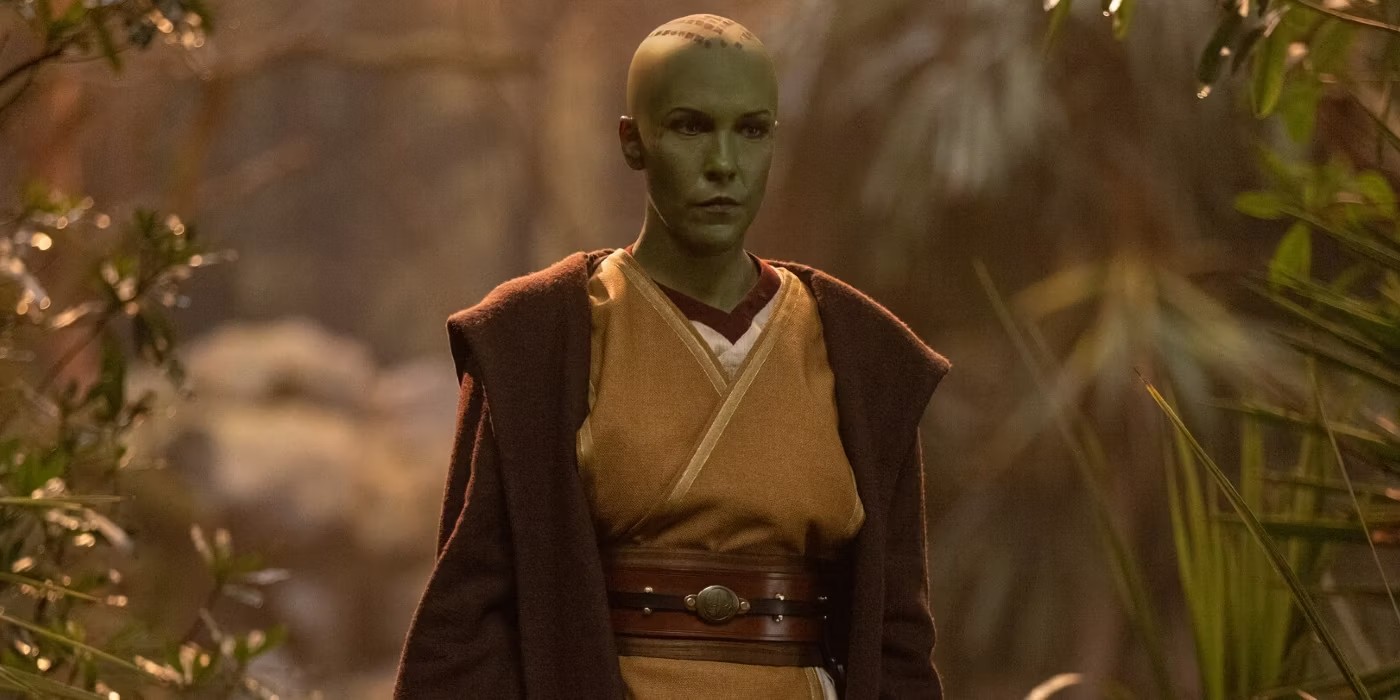This weekend, Netflix is releasing the action-drama Close, which stars Noomi Rapace (The Girl With the Dragon Tattoo) in the leading role. The film is the third from British filmmaker Vicky Jewson, who came onto the scene back in 2008 with her debut film Lady Godiva. However, with that film being a romantic-comedy, she couldn’t really be much farther from her filmmaking roots.
I had a chance to chat on the phone with Jewson recently, and in our discussion, we discuss some of the writing of the film, the very specific perspective she wanted the film to be told in (so much so there are scenes where a foreign language is spoken with no subtitles), and a potential sequel.
Below is the official synopsis for the Close:
To protect an heiress from highly trained kidnappers, a lone security expert (Noomi Rapace) must unravel a sinister plot — while striving to stay alive in this thrilling, female-driven action drama written & directed by Vicky Jewson.
LRM: So, for those that are going to be watching it, can you tell them a little bit about the story?
Jewson: Yeah, of course. It’s about a female bodyguard, inspired by a real woman, and her client, or principal, who is a young, very wealthy heiress, who’s very lonely, and they get flung together. The bodyguard becomes a terrorist expert, so they come from very different worlds, and they get flung together for a very short mission, but it all goes horribly wrong and they end up having to go on the run together through the streets of Morocco, and it’s through that process that these characters really connect. We realize that they actually have a lot more in common than we first thought. While their fighting to stay alive, they become friends.
LRM: When it comes to the characters, as a writer, my question now is how did you manage to write the depth of each character? You didn’t dive deep on each of them, but you did so well with just enough.
Jewson: It’s a funny thing. You do all this background when you’re prepping the writing, so you write all their past histories and their motivations and what’s happened to them, but obviously, there’s not much room in a movie to just put all that in, and you have to find the nuggets that will tell the audience those key moments that you want to get across, and, for me, it was really important to have a character that started at one place and ended the film in a very different place. And it was really important to me that Sam was being haunted by something, and when we were putting this story together, we saw this really arresting image of a woman who had come back from the military, hugging her child, who’s like a toddler, in arrivals in the airport. It was just so emotionally impactive, this image. It gave us the idea for Sam’s child being out there in the world and that Sam was using her job as a bodyguard to, kind of, not deal with her personal life, because she likes to be in control of absolutely everything.
And then, it made complete sense that Zoe would be this character that would kind of interrupt all of that and throw her world completely upside down, whilst at the same time, Zoe’s having her extreme “coming of age” story. So, for me, it was all about mapping out both those character’s hearts and finding where they intersected and where they complimented each other and how they would challenge each other to give a story that was, hopefully, character-driven, so that when you hit those action sequences, they resonate on a deeper level than if you didn’t have those connections with those characters.
LRM: Right, and where was the filming done?
Jewson: It was done in the UK and in Morocco.
LRM: Okay. There were some parts, I don’t know if, maybe, the screener that I got didn’t have it, but there were some parts where they were speaking Moroccan, and I was a little frustrated ’cause I was like, “Oh my gosh. I don’t know what they’re saying,” because there was a missing caption for that, but I’m sure that would’ve just given me…well, I already had the thrill of “Oh my gosh. What’s gonna happen”, but I think that would’ve just, maybe, ruined a little bit of my thrill, itself, of what they were talking about, what was being discussed, what was coming, towards the end.
Jewson: Well, we took an approach with these foreign languages that were spoken, that when the characters understood what were being said, we would include the audience in it, and if they didn’t, then we wouldn’t, so that we were always, very much, trying to put the audience in the perspective of the characters. So, when Reema’s speaking in French or Arabic to her staff, that should all of been captioned at the stuff where there’s small conversations between them…policeman…and hushed conversations being kept back, uncaptioned, to kind of, add to the sense of peril already, particularly in the piece when their driving and they,
LRM: Yes.
Jewson: Zoe and Sam start to sense it’s not right. I wanted us to be in the same situation as them.
LRM: Yeah. That was a good scene. I was going to ask you, how was it directing for that particular scene when they’re in that vehicle.
Jewson: It was a challenging thing ’cause we shot them in different places, but it was something that we created quite a long time before we made the movie, so I knew exactly what I wanted to achieve. I wanted to put the audience in that position of “if you were surrounded and you’re in that intense and hostile environment, I wanted people to think “well, how would I get out of that situation and to have that kind of raw explosion of Sam’s brutality ending in Zoe killing that cop, which then, I wanted to really resonate, so that we could feel the real weight of what she had done and that there was no turning back from it. It required a lot of planning, and then a lot of, well, I mean not a lot of rehearsal. We rehearsed it a couple of times, with actresses Noomi Rapace and with Sophie Nélisse. And we did a lot of pre-vis on our iPhones and then, it all just kind of came together in different pieces and shooting it on the roundabout in Casablanca, was an idea that we had. Originally the scene was shot in a moving vehicle and when we were looking around Casablanca, I realized the traffic there is unbelievable. I thought, well, it would feel a lot more original and authentic if they were stuck in this huge traffic jam on the roundabout, so that’s how that one came about.
LRM: Okay, yeah. It seems like that was a really challenging scene, I mean, in such a confined space of being in the vehicle with, what, was it five people?
Jewson: Exactly. We have to keep shuffling people around, and that’s where doing pre-vis is really useful because you can find out the angles you need, because a lot of action is making sure you’ve got the right coverage to really work for you in the edits, so we were able just t get a load of people in a vehicle and work out where you could actually shoot from. And we never wanted to shoot from outside of the glass, looking into it. We wanted to feel like we were in there with the characters, which made it all the more challenging.
LRM: So there was a scene, going back to covering some of your scenes that honestly, totally stood out and I enjoyed, the one where you have Sam who’s tied up, but yet, she’s like, kicking ass. How long did it take to film that scene itself?
Jewson: We did that in a day. I wanted to shoot it in one take as much as possible
LRM: Mm-hmm (affirmative)
Jewson: Because I wanted to get that exhaustion that you would have fighting from a place where your hands are tied and where the odds are against you and you’re having to give absolutely every last full bits of energy to survive, so we couldn’t do it all in one take (Laughs).
LRM: Right.
Jewson: I think we split it into three parts and we shot it very intensely all in a day afterwars, Noomi said to me, “Vicky would have normally shot that in four days.” I was like, “Yeah. I know. I know.” But we were under such a tight schedule with our budget that we literally didn’t have any choice. We just had to go for it. And one of my pre-agreements with the DP that day was that he had to pre-light the room, because normally, he’s a real artist and we had designed all these worlds for the film, and we wanted to make sure that we really used the lighting, but on that day, I was like we need to prelit this and every time we move from setup to setup, we need five minutes max. Otherwise, we’re never gonna achieve it. And I wanted to keep that flow going for the actors so that the exhaustion and the intensity remained.
LRM: Speaking again about Sam and you, as a writer, how did you come up with this character where you have this successful, when it comes to career, character, but yet, when it comes to the personal life, not so great? In a way, it seems like she, with the career, she feels like she has her life in control, but yet, not. How did you come up with that, that story, that platform?
Jewson: I think, in meeting Jackie, asking about how she deals with these jobs that she goes on, it’s all very impersonal. It’s all about being detached, being a successful bodyguard. It’s all about having protocols, and planning, and not getting too close to the principal and when stuff gets wrong, it’s like, you can’t feel fear in the moment. You can only feel the fear afterwards. So, I thought it was a very good profession to have if you were a massive control freak, who was afraid of something. So I feel like Sam’s massively confident in her world of work, but with her personal life, she’s afraid. She’s sort of imprisoned by her personal life, so being a bodyguard gives her this world that she can escape to and can be completely absorbed in and can’t think about her personal life. I think, you know, if she hadn’t met Zoe, she’d just continue doing that and going from job to job, from city to city, without having to confront her inner demons.
LRM: Right. So, is there a chance there could be another story to this? Another continuation to Close? Maybe Closer?
Jewson: There could be. Jackie’s written a book called “The Circuit”, which is about her life as a bodyguard, and, for sure, when I first met Jackie, she had so many stories. It was like I heard nine movies in just an hour talking to her, so in a way, we had to be quite disciplined to just select event. So, we have the material, and I would definitely be interested in doing more stories in that world.
LRM: Well, in that case, I really look forward to it. Is there anything you can share to finalize that you may have coming up for this year? Besides Close?
Jewson: I’m currently writing a bit about Sylvia Raphael, who is a true female spy from the 1970’s, who was a Mossad spy. So that’s a true story, which myself and my writing partner, we’re working on at the moment.
LRM: Great! We’ll look forward to it. As a writer, I like your stories. I really enjoyed them, the way it’s written, and look forward to seeing more.
Jewson: Thank you. It was lovely to talk to you. Thank you so much.
Close hits Netflix on January 18, 2019!
Don’t forget to share this post on your Facebook wall and with your Twitter followers! Just hit the buttons on the top of this page.
SOURCE: LRM EXCLUSIVE

 FOR FANBOYS, BY FANBOYS
Have you checked out LRM Online’s official podcasts and videos on The Genreverse Podcast Network? Available on YouTube and all your favorite podcast apps, This multimedia empire includes The Daily CoG, Breaking Geek Radio: The Podcast, GeekScholars Movie News, Anime-Versal Review Podcast, and our Star Wars dedicated podcast The Cantina. Check it out by listening on all your favorite podcast apps, or watching on YouTube!
Subscribe on: Apple Podcasts | Spotify | SoundCloud | Stitcher | Google Play
FOR FANBOYS, BY FANBOYS
Have you checked out LRM Online’s official podcasts and videos on The Genreverse Podcast Network? Available on YouTube and all your favorite podcast apps, This multimedia empire includes The Daily CoG, Breaking Geek Radio: The Podcast, GeekScholars Movie News, Anime-Versal Review Podcast, and our Star Wars dedicated podcast The Cantina. Check it out by listening on all your favorite podcast apps, or watching on YouTube!
Subscribe on: Apple Podcasts | Spotify | SoundCloud | Stitcher | Google Play







